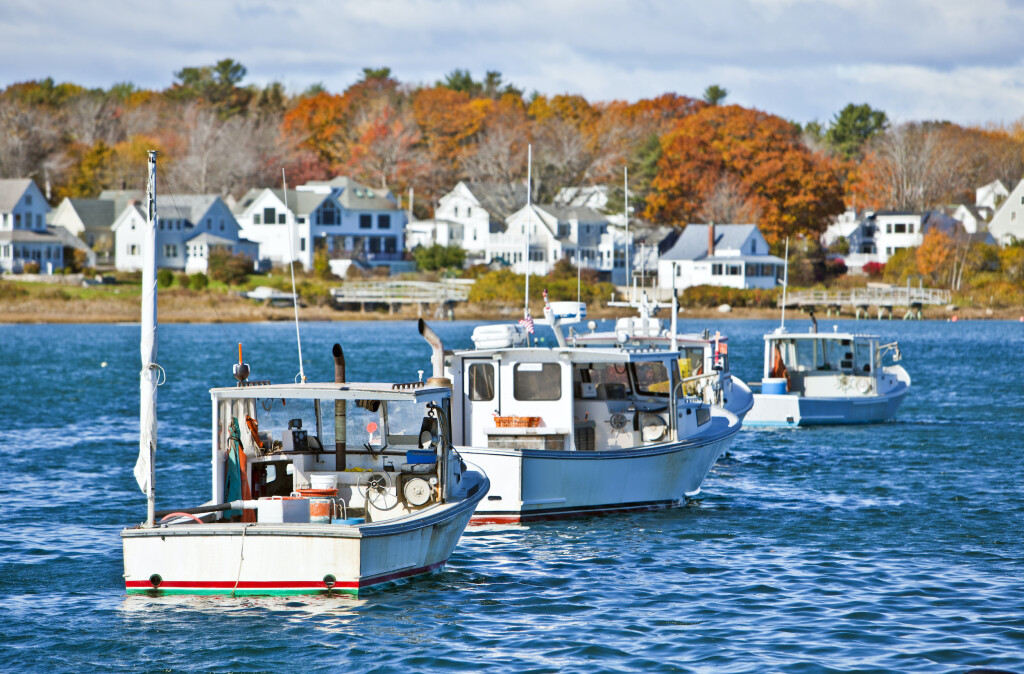Can a marine animal rights group do its best work from the side of the highway? One thing that’s sure is Mainers Guarding Right Whales’ new billboard campaign is garnering some attention this week. The downside is that the spotlight is coming with a big helping of side eye.
The campaign is aimed at tourists heading to Maine, ostensibly to inform them that “lobster dinners at seaside harbors come at a steep price to North Atlantic right whales,” according to the organization. The Maine-based group posted roadside signs in Massachusetts to launch the campaign, because billboards are not legal in Maine. It also recommends buying lobster from divers, which also is not legal in the state.
Once again, the target of a group proclaiming a goal of “guarding” the dwindling North Atlantic Right Whale population zeroes in on Maine lobstermen for no apparent reason.
The justification is always the same: Right whales show scars from fishing gear. Therefore, Maine lobstermen must be the problem. Another case of correlation rather than causation.
Since 2017, 33 right whales have been killed, according to NOAA. Of those, 21 were in Canada and 12 were in the United States. Ten of the 12 domestic incidents — 83 percent — were attributed to ship strikes. None can be linked to the Maine lobster industry.
“We believe if we can educate and inform travelers about the near extinction of right whales and the cause, they will take action and help protect the whales,” said Barbara Skapa, founder and executive director of the group.
If that is the goal, then they might consider targeting changes in practices of the global shipping trade. Like many before them, this organization seems to be taking swipes at the easiest target. Why pick a fight with a massive opponent like global trade when you can punch down at fishermen?
The group’s campaign disregards the fact that most right whale deaths are the result of ship strikes, focusing instead on experimental, prohibitively expensive and in some cases illegal fishing methods. They are also urging consumers to ask for a nonexistent designation of “whale-safe” lobster. Creating confusion between consumers and retailers does not qualify as “education.”
The organization’s apparent cognitive dissonance also requires ignorance of the fact that Maine lobstermen — largely through the Maine Lobstermen’s Association — have been working for decades to reduce interactions with all marine mammals, including right whales. This work has included a slate of volunteer gear adjustments proposed by the Maine lobster fishery itself.
“It’s unfortunate that this campaign ignores the decades of cooperation from Maine lobstermen and proactive changes they have made to protect right whales,” Marianne LaCroix, director of the Maine Lobster Marketing Collaborative, told the Portland Press Herald.
Fishermen-proposed protective measures have included eliminating surface rope, setting more traps on each buoy line to reduce vertical lines in the water, incorporating weak links to prevent entanglements, and area closures.
A proposed federal take-reduction plan for the fishery piles on more gear modifications but is not designed to include ship strike preventions or reduce mortality and serious injuries in Canadian waters.
On the horizon is another unknown — offshore wind arrays.
The real bottom line is that no problem is going to be solved by targeting one user group. All stakeholders need to be at the table to devise our best holistic approach. Targeting fishermen is a cheap shot. This is not where the real work is being done. But I sympathize with the fact that a threat to collaborate rarely raises the funds you need to run the next fundraiser. You have to make a splash, or create an eyesore, as the case may be.
Meanwhile, the industry’s stakeholders and the Maine Department of Marine Fisheries are doing the hard work to ensure a future for this iconic fishery and our working waterfronts, which thrive on a balance of tourism and healthy local fisheries.







